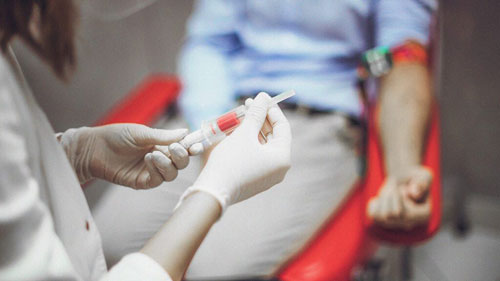Researchers found that levels of a nerve growth factor were lower in people with depression or bipolar disorder than in healthy controls. Doctors could potentially use levels of the growth factor to monitor the effects of antidepressant treatment.
In adults, a protein called brain-derived neurotrophic factor (BDNF) promotes the growth and survival of nerve cells and is known to play a vital role in learning, memory, and maintaining brain flexibility, or “plasticity.” Psychological stress reduces blood levels of one form of the protein, called mature BDNF (mBDNF), and low levels are associated with depression.
However, commercially available blood tests are unable to differentiate accurately between mBDNF and its precursor, known as proBDNF. This matters because proBDNF binds to a different receptor and causes inflammation and nerve degeneration. “Growing evidence indicates that inflammation in brain cells is linked with depressive behaviors, and proBDNF seems to activate the immune system,” says Prof. Xin-Fu Zhou of the University of South Australia in Adelaide. “Therefore, we must separate it from mature BDNF to get an accurate reading.” Recent studies in animals by Prof. Zhou and his colleagues found that injecting proBDNF into the brain or muscle triggers depressive behaviors. Prof. Zhou and his team have now developed a test that can measure mBDNF much more accurately. In collaboration with the University of Adelaide and Kunming Medical University in Yunnan, China, they used the new test to show that people with depression or bipolar disorder have significantly lower levels of mBDNF in their blood than healthy controls. In a paper that appears in the Journal of Psychiatric Research, the study authors say that doctors could use the test to diagnose these conditions and monitor the success of treatment. “This could be an objective biomarker, in addition to a clinical assessment by a doctor,” says Prof. Zhou.
Antibody-based test, this type of test, known as an “enzyme-linked immunosorbent assay,” or ELISA, uses antibodies to detect the presence of specific proteins. The researchers applied their new test to blood samples from 90 inpatients with major depressive disorder, 15 inpatients with bipolar disorder, and 96 healthy controls. The healthy controls were people who had attended the medical center at the psychiatric hospital for a general medical examination and did not have a severe mental illness.
They also tested samples from 14 other people with a history of suicide attempts in the past 10 years. All of these individuals were living in the community and should, therefore, have had better mental health than the current inpatients.










